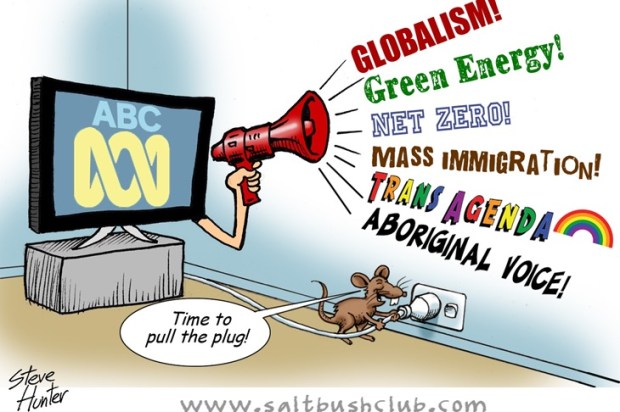It’s my observation that most women come at politics from a fundamentally different perspective than men – as they do with career, relationships, sex and even driving cars. Generally, they do it with less rancour, without abusing men and without sexist language. Despite this, many women in federal politics have now come forward with mind-numbing stories of sexist and misogynist behaviour. However, some of the worst behaviour is seen at state and local government level, beyond the scrutiny of the federal parliamentary press gallery.
After recently casting her deciding vote to allow the Andrews’ government a further nine months of emergency services legislation, Victorian Legislative councillor Reason Party MP, Fiona Patten, was ruthlessly trolled by men on social media who claimed she was responsible for locking them up during Melbourne’s COVID crisis. Much of this was encouraged by male MPs via their social media accounts. The attacks spilt out onto the street where spineless men accosted Patten and abused her using the most sexually vile language. One particularly egregious case is now before the courts.
Patten would have had every right to demand police protection but she never asked for it. The sexualised abuse continued via Victorian Liberal backbencher, James Newbury. He tweeted that she ‘had more positions than the karma sutra’ on the emergency services laws. Angry women from all parties flew back at him on social media. One of them encouraged women to ‘please give him a piece of your mind’. On the strength of that comment, it seems, Newberry turned up at a local community market that evening with a police escort!.
This was not the first time Patten had dealt with such gendered abuse. As she stated in her 2016 biography, Sex, Drugs and the Electoral Roll, while she was being sworn into parliament in 2014, a Liberal MP texted his staff member in the bleachers above the chamber that, ’she should be swearing in on a vibrator, not a bible’. Then he texted ‘I’ll bet it looks like she sat on an ice cream when she gets up’. Patten promptly stuffed a print out of his texts under his door after receiving them from a colleague. Later she noticed that someone had placed condoms under the lectern she spoke from in the chamber.
During an earlier 2010 election campaign, she received sexist and threatening texts from the Socialist Alliance candidate, Steven Jolly a local councillor. The texts were forwarded to the Victorian Electoral Commission but no action was forthcoming with the VEC claiming that it was outside their jurisdiction.
The most plausible explanation for the tsunami of abuse Patten has received, both in and out of parliament, is that men have felt threatened by the tangible success that this former sex worker has achieved. Patten has now had the Victorian government adopt many of her private members bills and all of them have since been written into law or are about to be. These have included very difficult issues like physician-assisted dying, medically supervised injecting rooms and changes to abortion laws.
In politics, virtue signalling is a very male way of conducting business. It’s quick and easy. It thrives on the gotcha moment and requires no ability to strategise or work cooperatively. The NSW upper house MP, Fred Nile, is an expert at it. At the beginning of every new parliamentary term he reads out a list of Bills he intends to introduce. Known as a ‘First Reading’ they contain a title and then a longer title and that’s all. Over the last decade, he’s introduced five notices of motion or private members bills about gay couples adoption rights, three or four abortion bills, and a dozen about adult videos. When his constituents ask about what he’s done in parliament, he will refer to the bills he’s read into Hansard as evidence of his achievements. It doesn’t matter that hardly any of them have had a longer second reading and that none of them has made it into law.
To a lesser degree the Greens are also guilty of virtue signalling but in a slightly different way. Often they will put up a bill or motion without even attempting to lobby the government to vote for it. I was recently stunned to see the NSW Green David Shoebridge, put up an amendment to the Road Safety Act to make it legal to drive with cannabis in your system with a prescription for medicinal cannabis. Without doing any obvious advocacy or background work and no serious lobbying of the government, this has no chance of being legislated, so why bother?
In contrast, Fiona Patten ran the classic female campaign on the same issue. She introduced three amendments to the Victorian Road Safety Act to do the same thing — the last one being an amendment bill that was debated in the upper house and resulted in the issue being referred to a taskforce established by the state government. She lobbied the Andrews government at length on the issue and lobbied others to advocate on her behalf. Many coffees, phone calls and emails later, she received this statement from Victorian Minister for Local Government Shaun Leane, made on the floor of the Upper House: “I want to restate our government’s commitment to Ms Patten that we are really keen to work with her on this particular issue. We are going to work with Ms Patten on the outcome to ensure people are not disadvantaged by taking their medication.”
More women in our parliaments often means that more effective work gets done with less aggro.
The Liberal Party might consider putting quotas in place to make this happen.
Emeritus Professor of History and Politics at Griffith University, Ross Fitzgerald AM is the author of forty-two books. His most recent publications are the political/sexual satire The Dizzying Heights, co-authored with Ian McFadyen, and a memoir Fifty Years Sober: An Alcoholic’s Journey, both published by Hybrid Publishers.
Got something to add? Join the discussion and comment below.
Get 10 issues for just $10
Subscribe to The Spectator Australia today for the next 10 magazine issues, plus full online access, for just $10.


























Comments
Don't miss out
Join the conversation with other Spectator Australia readers. Subscribe to leave a comment.
SUBSCRIBEAlready a subscriber? Log in